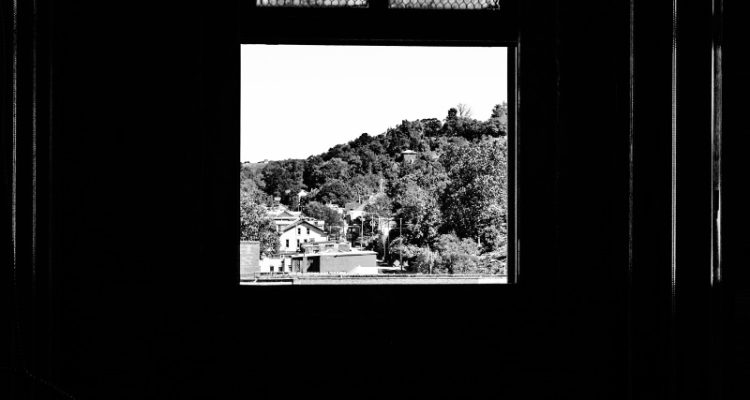Note: This article contains explicit language and subject matter that is not suitable for children. It is the equivalent of Rated R.
(Writer’s Note: This is the eighth in a series of stories that will concentrate on the organized-crime scene in and around Wheeling during the past century.)
Sloppiness, Surveillance, and Real Lives.
I played spot sheets every week of football season during my high school years at The Linsly School. The NFL and college games were on those sheets, and for five bucks I could pick my winners in five games at 5/1 odds. When I hit all five, the distributing classmate delivered the winnings on Monday at my locker in Banes Hall.
At that time, $25 bought the movie tickets, the Rax meals, the gas, and maybe even the beer during what we called a date in the early to mid-1980s.
And during those days some of us older looking chaps were able to stroll on into the Whistle Stop Lounge or Mac’s Club or Harvey’s 1818 and have some draft beers, and I recall sitting next to classmates, all-state quarterbacks, gorgeous cheerleaders, Glee Club members, class presidents and Homecoming queens.
And yes, teachers, too.
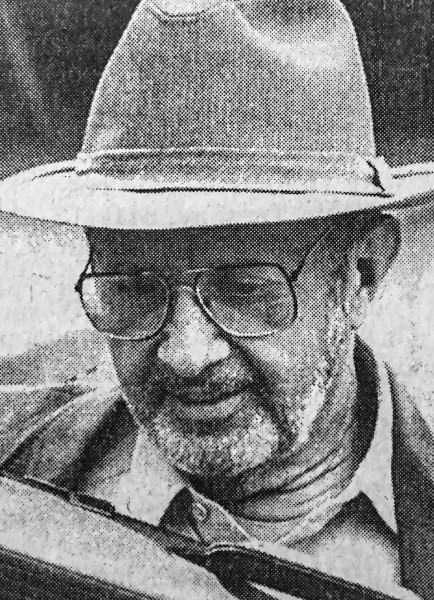
It was Wheeling a little more than 30 years ago, and it seemed expected during an era in which the current version of “after proms” did not exist. Instead, some friend’s parents hosted at their house and the keg and the BYOB policy were always in place because those heads were turned away in “rite of passage” fashion.
My years at West Liberty State College were not much different except for the infusion of the drug trade. Marijuana reeked in most dormitory hallways (the towels only worked for so long), and the traditional Thursday night parties were spackled with tabs of acid, baggies of mushrooms and speeders, and lines of cocaine. The deals got done when people asked people if they wanted in on those nights when a group had access to “that guy” who had a phone number they could call and make it happen. The same took place in every bar and strip club, every restaurant, and it even reached dorm rooms on the bottom and the top of the big hill.
But no one realized nor cared how or why those spot sheets and drugs were so readily available; what we did know was that sports betting was common conversation, and that parties were not difficult to discover in the Wheeling area.
But then the round-up began and several leaders of the organized crime ring headed by Paul “No Legs” Hankish were named in a 218-count indictment and quickly arrested. Hankish was charged with 89 counts for crimes that dated back to 1957, including charges that alleged making threats, extortion, drug trafficking, gambling, tax evasion, and defrauding the government. The federal government claimed the Hankish mob had operated a drug ring since 1981 that accounted for at least half of the pot and coke that was consumed in the Wheeling area.
The federal government also estimated Hankish’s earning to be at least $1 million from drug trafficking and at least $5 million from the illegal gambling activities, and the prosecution claimed Hankish was guilty of conducting criminal operations in at least eight different states.
Law enforcement conducted several raids at suspected Hankish-connected businesses on Dec. 20, 1987, the police reports indicate. Hankish was not brought into custody until Oct. 2, 1989 while he was in the Miami, Fla., area. He was 58 years old at the time.
Not only was Hankish selling drugs, he was using them, too, according to retired FBI agent Tom Burgoyne. Hankish flaunted his coke, he said, and the mob boss shared with hookers and henchmen and bodyguards and associates and anyone else he wished to impress.
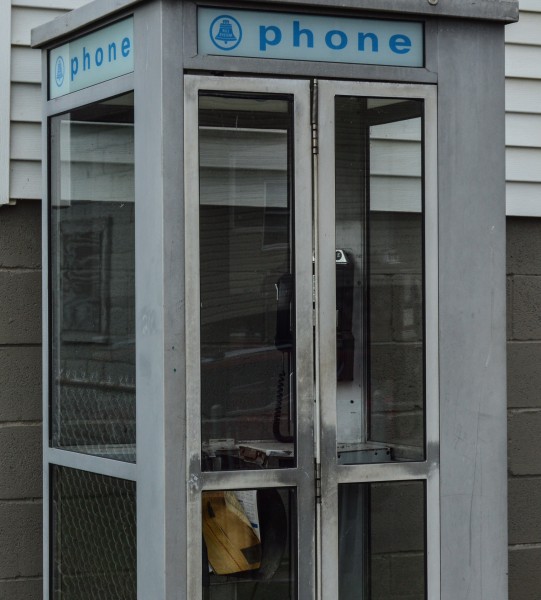
“I have thought about it a lot since the trial in 1990,” Burgoyne said. “I still believe Paul Hankish got lazy and he got sloppy, and that was because not only was he selling the cocaine, but he was also using that stuff.
“He got careless like he never was before,” Burgoyne continued. “Trust me, we were trying to bring him down for years, but he was clever, and he was a big deal along the East Coast. We knew what he was doing and what his guys were doing, but we needed solid proof and that was tough. Up until the cocaine, that is.”
Agents with the Federal Bureau of Investigation gained jurisdiction over the use and trafficking of cocaine in 1983, and Burgoyne and his fellow agents welcomed the new task because of the amount of the drug flowing not only in Wheeling but everywhere they peered. Because of the blow, Burgoyne and his federal colleagues were able to link other criminal activities to the Hankish organization like prostitution, stolen goods, gambling, and extortion.
“Plus, he was getting older, and doing the cocaine didn’t help him at all. That’s actually what finally brought him, and others, to justice,” Burgoyne said. “What you may not have realized is that sharing it and selling the cocaine was the same thing. It was distribution nonetheless.
“And every time he shared his cocaine meant we had someone new to talk to, and that ultimately meant we were going to have even more witnesses to testify about the drugs and anything else they knew about,” he continued. “Once those things started happening the case moved right along, and that’s how the charges included hundreds of indictments.”
In Part 2 of this series, you met, “Splinter,” a former drug dealer and strongman for the Hankish organization who approached Burgoyne and his FBI partners and quickly became a confidential informant. But he was not alone as officers and agents with the FBI, the Wheeling Police Department, and the Internal Revenue Service gathered the rats and offered deals in exchange for cooperation.
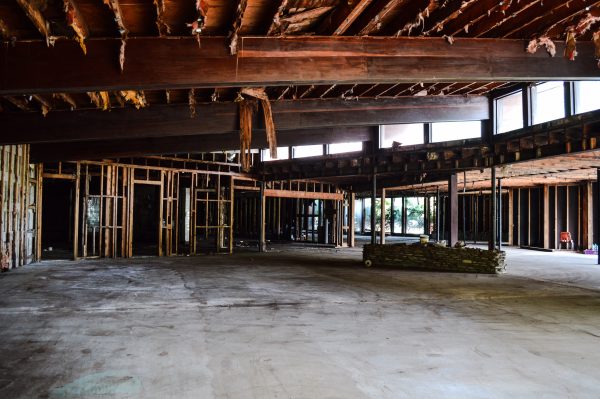
A Collection of Cops
Burgoyne has received most of the press within this story series and in the 30 years that have passed since a task force was formed to concentrate solely on the activities of the Hankish organization, but he is the first to acknowledge the many other law enforcement officers who also worked on the case.
“I knew who Paul Hankish was since my first day in Wheeling (1967) because of a truck of stolen beer that ended up in Bridgeport, but it wasn’t until 1985 when all of the investigators finally sat down together and formed a task force that focused only on the Hankish organization,” he said. “That’s when the IRS agents sat down with the FBI agents. The IRS was working with the West Virginia State Police, and we at the FBI were working with Lt. Jim Wright with the Wheeling Police Department.
“We were sitting down on a weekly basis in the U.S. Attorney’s Office and initially we divided up the case so each entity knew who was going to do what, and what part of the Hankish organization they needed to concentrate on,” he continued. “The state police and the city police then became the boots on the ground, too, so we had many more people who could do surveillance so it wasn’t just us.
“Jim Wright would call my house nearly every night with new sources of information based on what he and the other officers may have seen that day concerning the Hankish operation. That’s how it all started, and the funny thing about all of us was that we got along most of the time but we also almost had a fist fight in Bill Kolibash’s office one day, but I consider that now a good thing because everyone grew closer and really started working with each other very well.”
The scope of the investigation extended far past the limits of the Friendly City because Hankish was suspected to be involved with mob activity in states east and west of Wheeling, including Mississippi, New Jersey, New York, Ohio, Rhode Island, Texas and throughout West Virginia. Hankish liked expensive jewels and popular cars, and that’s what he told people he did for a living.
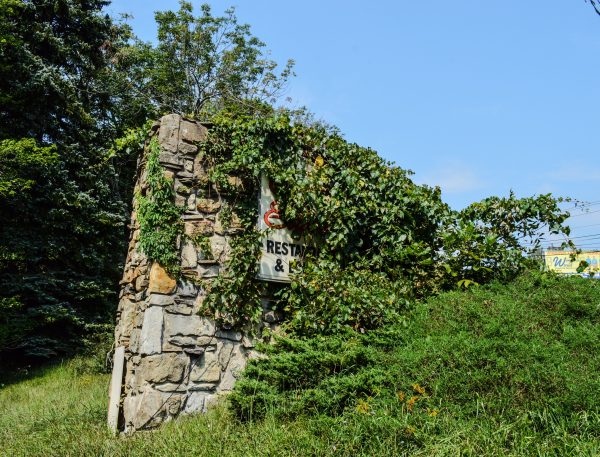
“But bit by bit, the case really came together because we were conducting investigations in New England, in Florida, and in several other states and all through this valley region, and then all of a sudden that 218-count indictment came together,” Burgoyne recalled. “And each of the investigating agencies collected those counts based on what they had uncovered while breaking down and watching their piece of the pie of the Hankish organization.
“Part of it was gambling. Part of it was drugs. Part of it was murder-for-hire. There were a lot of different criminal acts that led to those charges, and we also had a very diverse group of witnesses,” he said. “We knew when the indictments were released that we would have to go find those witnesses because we knew that some of them went into hiding. In most of those cases, though, they were either easy to find or we eventually had to go get them.”
Not only did the media learn of the 218 indictments, the local newspapers printed the entire 21-page release from the U.S. Attorney’s Office in Wheeling. Burgoyne believes that day surprised many people in the Upper Ohio Valley and especially in Wheeling.
“By then those crimes were so common no one thought twice about playing a spot sheet or a poker machine or doing a line of cocaine in some bar restroom,” he said. “And Hankish had tentacles into Steubenville, Bridgeport, Martins Ferry, Bellaire, Benwood and throughout Marshall County when his organization was in its prime, so when the indictments came down there were ripple effects throughout this valley. When he was at his highest height it’s when his gambling operation was the only game in town. If I had to pick a time when that was, I believe it was in the late 1970s and early-80s.
“He had all the football sheets. He had all the bookies. He had a lot of stuff going on and people don’t realize how much money was being made in the organized crime area back in those days, and it was mostly from sports betting,” the former agent continued. “They always said that gambling was the mother’s milk of organized crime, and it truly was for Paul Hankish. He made far more money from gambling than he did from the drugs or anything else.”
But the coke choked him, and it made him weak, the former FBI agent insisted.
“When he decided to get into the cocaine business, of course he had to find the people who were dealing it and make deals with them,” Burgoyne explained. “Inevitably that gave us a large set of witnesses to utilize because once we found them and knew what they were doing they usually wanted to work with us to minimize the amount of trouble that they were in. Hankish created the witnesses that ultimately brought him down.
“And that it got to the point with the cocaine that many other crime families stopped dealing with him because they didn’t want to deal with someone who was letting his guard down because of the drugs,” he continued. “In the old days before cocaine it was the stolen goods and the gambling, and those crimes were much more difficult to prove and solve.”
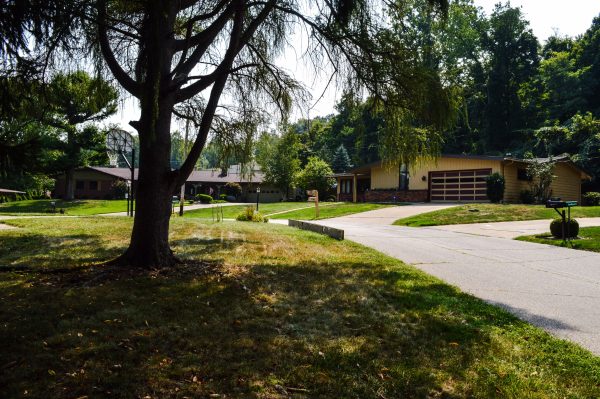
A Family Affair
Hankish had a wife and a family, and Burgoyne does, too, and so did every other person named within hundreds of pages of police reports and court documents. More than a few members of those families continue living in the Wheeling area, including attorney Gerry Jacovetty.
His father had a cousin named Charles R. “Buddy” Jacovetty, a man who held a high position within the Hankish organization while running the sports betting operations, and who was charged with 65 federal counts that included gambling, racketeering, drug trafficking, stolen goods, illegal trafficking of food stamps, and tax fraud. His wife and two sons were also indicted on gambling-related charges, according to court documents.
On July 17, 1990, “Buddy” Jacovetty pled guilty to 10 federal counts at the age of 51, and he was sentenced by U.S. Judge Robert Merhige to five years in federal prison.
“I think I was about 10 years old when I finally figured out that he was involved with something that was wrong,” Gerry said. “My first clue was that my grandfather’s basement was full of Marx toys because that’s where Buddy had a job for a while.
“I can remember getting one of those Wild West sets with the cowboys and the Indians, and also a lot of the Army guys that were small and green,” he continued. “And I overheard a lot of conversations that let me know that these guys were connected to Hankish and that they were stealing, and I can tell you that I never liked it. It always seemed 100 percent against what I was being taught by the sisters of St. Joseph.”
Through the years Gerry Jacovetty made a decision not to have much of a relationship with Buddy. He said and was cordial when appropriate, but never did he engage his father’s cousin in any manner.
“I was never involved with what he was doing, but I didn’t realize everything he was into until the indictment was released to the public,” he explained. “I knew about the stealing and the sports betting, but nothing else because there were spot sheets everywhere and people talked about that stuff all of the time. You could get a spot sheet in any bar in Wheeling. They were as common as anything.
“He never asked me to get involved and I think that’s because he knew that I knew he was bad to the core,” Jacovetty recalled. “As far as public opinion though, I think at least half of the people in Wheeling were fine with what those guys were doing because they appeared to be something like Robin Hood because they definitely took care of the poor. I know if someone needed a TV all they had to do was go to Buddy’s house and pick one out because his basement was usually full of them.
“I don’t think that many people around here really cared about what illegal activities those guys were involved in. The public’s perception was that they were stealing from the rich or from some big company far away from here.”
Jacovetty was 28 years old at the time the indictments were released and he was in his final year of law school when the trial began in July 1990.
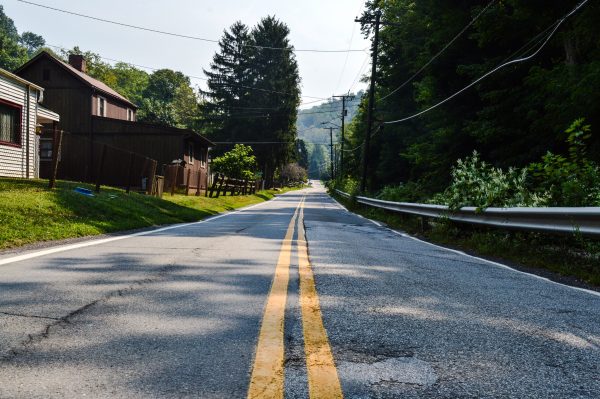
“When the list of charges came out I’m pretty sure I smiled from ear to ear, and when the newspaper published those 21 pages I read it from beginning to end,” he recalled. “I didn’t know he was into the drug dealing or the stuff with food stamps, but I can tell you that I wasn’t surprised one bit. He was in it, and I guess he was one of those guys who saw the money first.
“But no one on my side of the family talked about it. I don’t remember my father saying a single word about it,” Jacovetty continued. “And I never hear much about it these days maybe because most people don’t care or because they really don’t know what to say to me, and even when those crimes were being committed and other people knew there was some kind of connection between us because of the last name not many people ever said anything about it to me.”
He, too, played the spot sheets and the poker machines, and even though he didn’t condone the criminal activities, Jacovetty now admits that Upper Ohio Valley was likely safer when the Hankish mob was operating than the Friendly City is today.
“I knew early on that what Buddy and those guys were doing was wrong, and I’ll give credit to my Catholic upbringing for that,” he said. “But Wheeling changed for the worse after the organization was brought down. They policed it along with the police, and I knew that to be the case as a young man running a good bit around this town.
“I can tell you that if a guy was walking toward to the Sportsman Club on Market Street with a bunch of hundred dollar bills hanging out of his pocket and got robbed, the mob would find out who did it and take care of it. That was because if he was going to the Sportsman he was probably going to place some bets with the mob guys and they wanted that money instead of someone else getting it.
“The mob was a scary thing and you knew not to do anything to cross any of those guys. If you weren’t involved like I wasn’t, you just went about your business and stayed away from it,” Jacovetty added. “That fear isn’t on the streets anymore and the criminals are far more brazen today because of that. There’s no price to pay, really, because those kinds of crimes usually go unsolved anymore.
“But back then, those crimes got solved one way or the other, and justice was served, again, in one way or another.”
(Photography by Steve Novotney)


